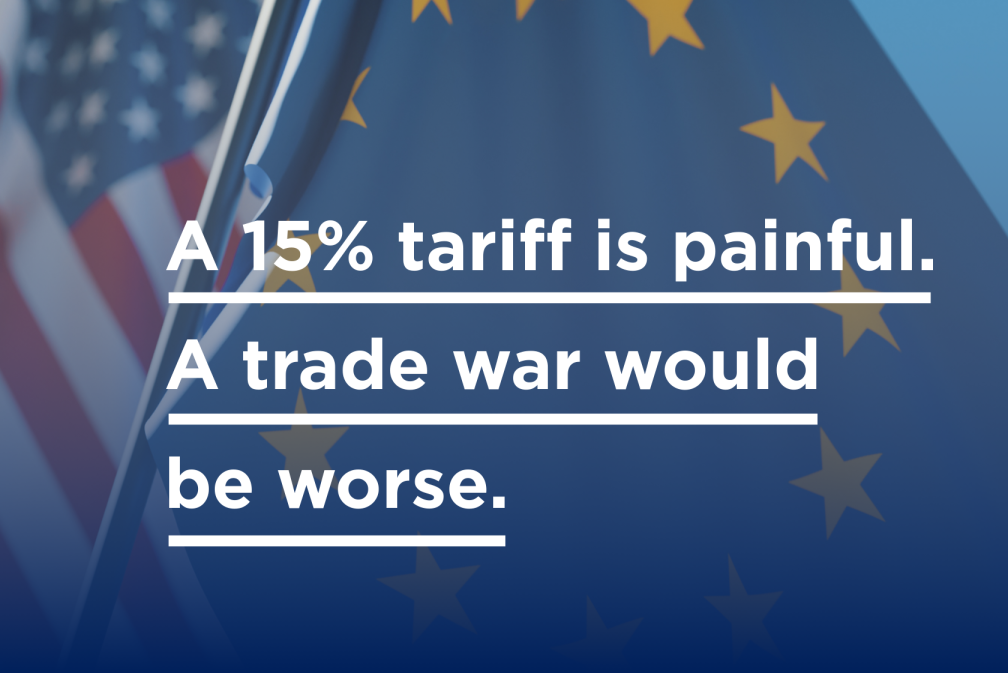As a result, courts in the Member States would need to significantly change their existing procedural rules. Consumers, even those who suffer harm, are unlikely to benefit from any of the PLD’s supposed ‘access to justice’ improvements. Instead, plaintiff lawyers and litigation funders may be the ones most likely to hit the jackpot.
Proposal for new for product liability rules seeks radical change
In September 2022, the European Commission published its proposal for a review of the current legislation on product liability to respond to a changing, increasingly digital, economy. The three EU institutions are currently negotiating the proposal (a process called ‘trilogues’) which could be finalised in December 2023. The Commission’s original intention appeared modest, but under the proposed PLD, radical new rules would come into play.
Judges would be required to assume a ‘defect’ in a product, as well as ‘causation’ between a defect and an alleged damage, in cases where damage is difficult to explain (for instance, due to the product’s supposed technical or scientific complexity).
What does this mean in practice?
Many consumer products will be affected. At one end of the spectrum the proposal would catch products that at first glance would appear to be simple. Take the example of processed food. Will a factory-processed, vegan sausage qualify as a ‘technically or scientifically complex’ product? The average person consuming these will not be able to explain its contents. At the other end of the spectrum, medical or pharmaceutical products could de facto be classed as complex, and therefore, they would be assumed to be defective without any meaningful evidence needed to prove it. In reality, almost all products across all sectors will be subject to the new rules. The new presumptions would represent a massive and in our view, unjustified lowering of the threshold to initiate litigation. They would overturn the carefully constructed balance between defendants’ and claimants’ rights that has broadly worked well for the past 40 years.
Policymakers should not review the PLD in isolation but rather in the context of other developments that are dramatically changing the legal landscape in the EU. For instance, the number and size of collective actions and other mass tort claims are increasing year on year in the EU, and the recent entry into force of the EU Representative Actions Directive will only accelerate this trend.
A highly lucrative litigation industry motivated primarily by financial gain rather than increasing access to justice is already growing strongly in Europe. By opening the door to frivolous and abusive litigation, the PLD will bolster the interests of plaintiff lawyers, litigation funders and their agents and other intermediaries – but most likely not those of consumers – at a time when questions are increasingly being raised, including, for example, about the sources of the funds and the identity and motives of the entities that are driving the litigation (See, eg ‘Chinese-funded lawsuits fuel backlash against litigation financiers’, Financial Times, 18 November 2023).
Why are these changes being introduced?
Some of the changes in PLD seem to originate with the assumption that ‘business does wrong and must be corrected via private enforcement’. But is encouraging litigation and eroding the procedural balance in courts the solution? Businesses are also employers, investors, economic accelerators and facilitators of innovation whose rights should be respected. Furthermore, other mechanisms for redress (such as public ombuds bodies, robust regulatory enforcement, mediation and conciliation processes) that are more effective, quicker and cheaper should be promoted in the EU, rather than private litigation.
The European Commission itself acknowledged in its own PLD proposal that a reversal of the burden of proof would lead to serious ramifications for both business and consumers. The Commission has held that its original proposal did not reverse the burden of proof; however, the PLD contains such a strong cascade of legal presumptions that in practice, it will have the same effect. As a result, businesses that are taking critical decisions about where to develop or launch their next innovative product lines or whether to apply new scientific knowledge to their products are likely to think twice about the EU as a location due to the new and increasingly supercharged litigation risks.
In its current form, the PLD runs counter to the EU’s efforts to improve competitiveness and drive progress in key areas such as the green transition, medical treatments and digital innovation. These risks, and the wider knock-on effects for investment, have not yet been properly evaluated. Despite this, the PLD is being rushed through the EU legislative process.
We urge the policymakers involved in the EU’s PLD process to be extra cautious and take the time necessary to fully evaluate the impact of the above concerns. Several key amendments should be introduced to prevent the unintended consequences that would chill innovation and hamper business in the EU as well as to ensure that the PLD delivers more balanced, better outcomes for everyone, including consumers, in the decades to come.
Susan Danger is the CEO of the American Chamber of Commerce to the EU (AmCham EU), which speaks for American companies committed to and invested in Europe. Aggregate US investment in Europe totalled more than €3.7 trillion in 2022, directly supports more than 4.9 million jobs in Europe and generates billions of euros annually in income, trade and research and development.



